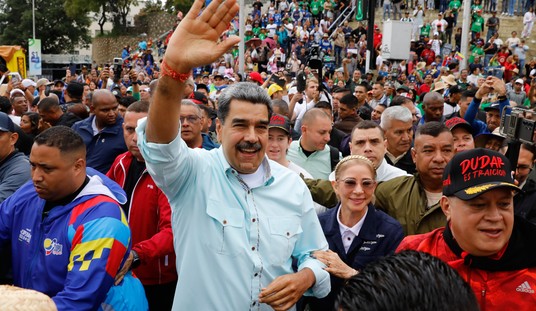There was a court ruling on Friday which has been widely viewed as a victory for Bernie Sanders while raising all sorts of questions about voting rights and suffrage. Previously established state law had allowed 17 year old residents who would be 18 in time for the general election to vote in the primary, but the Secretary of State had changed the rules such that you needed to be 18 for both. Challenges were filed and now the rules have been reset to stand as they were before. (Politico)
Sen. Bernie Sanders notched a potentially significant win on Friday evening when an Ohio judge issued an order, allowing 17-year-old voters to participate in the state’s presidential primary on Tuesday.
Franklin County Common Pleas Court Judge Richard Frye ruled that 17-year-old voters who turn 18 by the day of the November election can vote in the primary, though not on ballot issues or for any contests that would actually elect someone to office.
The ruling trumps a recent move by Secretary of State Jon Husted, a Republican, to block 17-year-old voters in the state from participating on election day, on the grounds that the teens would be voting for delegates, not nominating candidates directly. In December, Husted revised the state’s election manual, which previously allowed the practice.
The underlying law here is so old and dusty I had to back and read up on parts of it yesterday. Several questions have popped up on social media and most of them have some fairly clear cut answers. First, can the Secretary of State do what he did? Well… sort of. But you need to get the state legislator to approve it generally and that seems to be the position the court was taking. But can the states lower the voting age below 18 for the election of state or federal office holders? That one actually has two parts to it.
First, that’s not what the state was doing. They aren’t letting 17 year olds vote in an actual election to put someone in office. They were only allowing them to vote to select delegates to the convention. (Or at least that’s one argument, and apparently the one the court took to heart.)
But the broader question is if seventeen year olds can vote at all. There seems to be some confusion on that one and it may or may not be definitively settled at the Supreme Court level. Questions can be raised about the technical reading of the 26th Amendment.
Section 1. The right of citizens of the United States, who are eighteen years of age or older, to vote shall not be denied or abridged by the United States or by any State on account of age.
When you read the amendment as it stands, all it really says is that you can’t deny otherwise qualified persons the right to vote if they are above 18. What it fails to say is whether or not you can give the right to vote to anyone at a lower age. But we received at least some clarification from the Supremes in 1970 in the case of Oregon v. Mitchell. They declared at that time that the states could set a minimum age of 18 for voting in federal elections, but there are variations for local elections.
In terms of other than national elections, all sorts of things have been proposed. California has tried to allow children as young as 16 to vote several times, and even suggested 14 year olds could get a vote worth one half or one quarter of that of an adult. So all of this is something of a mixed bag, but having 17 year olds voting in the primary is nothing unusual nor unconstitutional. Whether it’s wise or not is another matter for debate, but let’s remember that we allow young men and women to enlist in the military and go to war at 17, so letting them vote doesn’t seem like much of a stretch to me.
For that matter, they should probably be able to buy a beer, don’t you think?








Join the conversation as a VIP Member